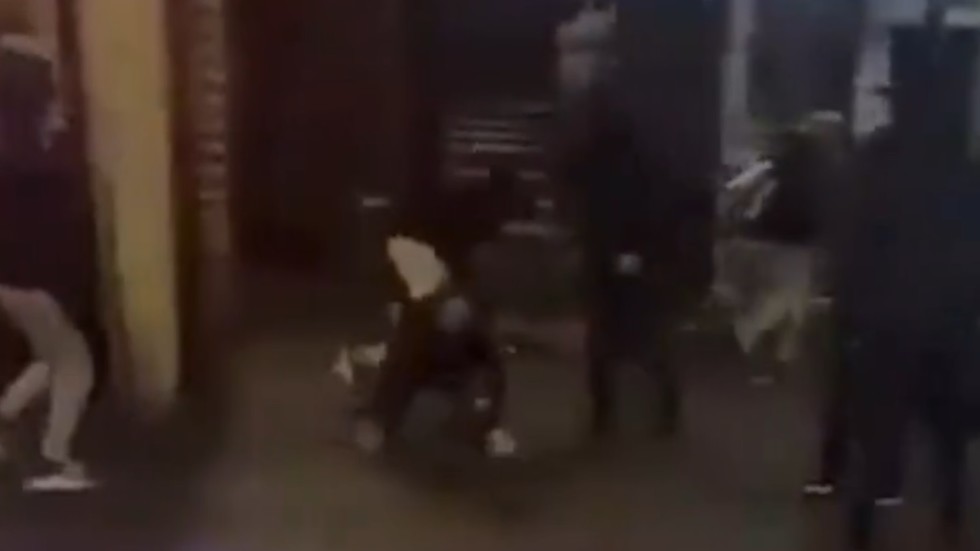Following a Europa League match in Amsterdam on November 8, 2024, violence erupted against fans of Israel’s Maccabi Tel Aviv football club, resulting in injuries and sending shockwaves through the Israeli community. As these fans were leaving the stadium after their match against Dutch team Ajax, they were violently ambushed by an anti-Israel mob. The Israeli Foreign Ministry reported that at least ten fans sustained injuries during the violence, the specifics of which were still uncertain at the time. In response to this troubling incident, Israeli Prime Minister Benjamin Netanyahu ordered the dispatch of two planes to bring home those affected. The Israeli government also issued warnings advising nationals to refrain from leaving their hotels in Amsterdam for safety reasons.
The nature of the violence that unfolded has drawn international attention, with Netanyahu expressing grave concern and urging Dutch authorities to take swift action against those responsible for the attacks. He emphasized the importance of safeguarding the well-being of Israeli citizens abroad. There were also calls from the Israeli National Security Council for citizens to avoid displaying any Israeli or Jewish symbols publicly, reflecting a heightened sense of vulnerability in light of the incidents. Social media posts from various Israeli officials characterized the attack as part of a larger trend of anti-Semitic violence in Europe, with Israeli Ambassador to the UN, Danny Danon, likening it to a “pogrom.” This rhetoric calls for a robust response from both communities and governments to address the rising tide of anti-Jewish sentiment.
The situation in Amsterdam unfolded against a backdrop of rising tensions globally, particularly in Europe, where incidents of anti-Semitism have escalated dramatically since the intensification of the Israel-Hamas conflict in late 2023. The Fundamental Rights Agency had previously highlighted the alarming increase in anti-Semitic incidents across the EU, correlating this rise with heightened political and social tensions surrounding the Israel-Palestine conflict. Reports indicated a significant increase in incidents targeting Jewish individuals and communities as pro-Palestinian activism surged in response to violent confrontations in the region. The current context underscores how football matches, which are typically social and celebratory events, can become flashpoints for larger societal issues.
Local authorities in Amsterdam had anticipated potential confrontations related to the match and had stepped up police presence in the city ahead of time. Despite these measures, violence erupted, leading to at least thirty arrests according to the Israeli Foreign Ministry. In addition, reports emerged of confrontations prior to the match, including altercations over Palestinian flags, contributing to an atmosphere ripe for conflict. Such incidents illustrate the complex dynamics in European cities where local politics, historical grievances, and contemporary conflicts intertwine, posing challenges for law enforcement and community relations.
The violent events in Amsterdam not only draw attention to the dangerous situations that can arise surrounding major sporting events but also highlight the urgent need for a multifaceted response to anti-Semitism and the celebration of cultural diversity. Understanding these issues requires acknowledging the broader socio-political landscape and the ways in which historical and contemporary grievances can manifest in violence. Grassroots initiatives aimed at fostering inter-community dialogue, along with political frameworks addressing hate speech and violence, may be necessary steps in curtailing such incidents.
In summary, the violence against Maccabi Tel Aviv fans in Amsterdam is emblematic of a wider pattern of anti-Semitic violence and societal tensions that have been exacerbated since the outbreak of the Israel-Hamas conflict. Reacting with concern and urgency, Israeli officials have called for protective measures for their citizens abroad and highlighted the increasing urgency to combat anti-Jewish sentiments across Europe. This incident reveals broader societal issues that challenge governments and communities alike, thus necessitating robust dialogue and cooperation to cultivate an environment of tolerance and mutual respect. As Europe grapples with these complexities, the hope remains that dialogue and understanding can prevail over violence.

